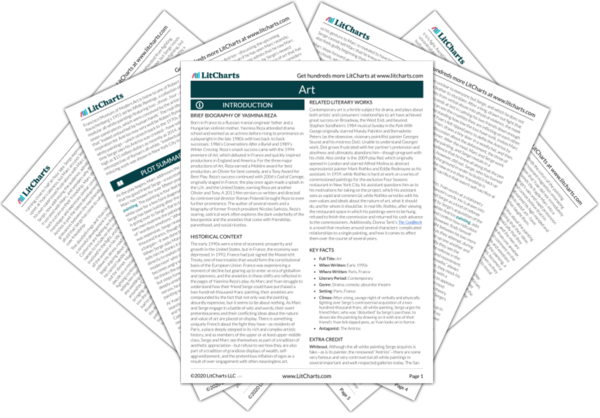Marc, after a botched encounter with the sensitive Yvan, begins to realize that his behavior regarding the Antrios has been more than a little bit over the top. Note that his vow at the end of this monologue is not to be kinder or more empathetic, or to try to see the Antrios through his friends’ eyes—it is simply to deceive them by acting like a better version of himself.
